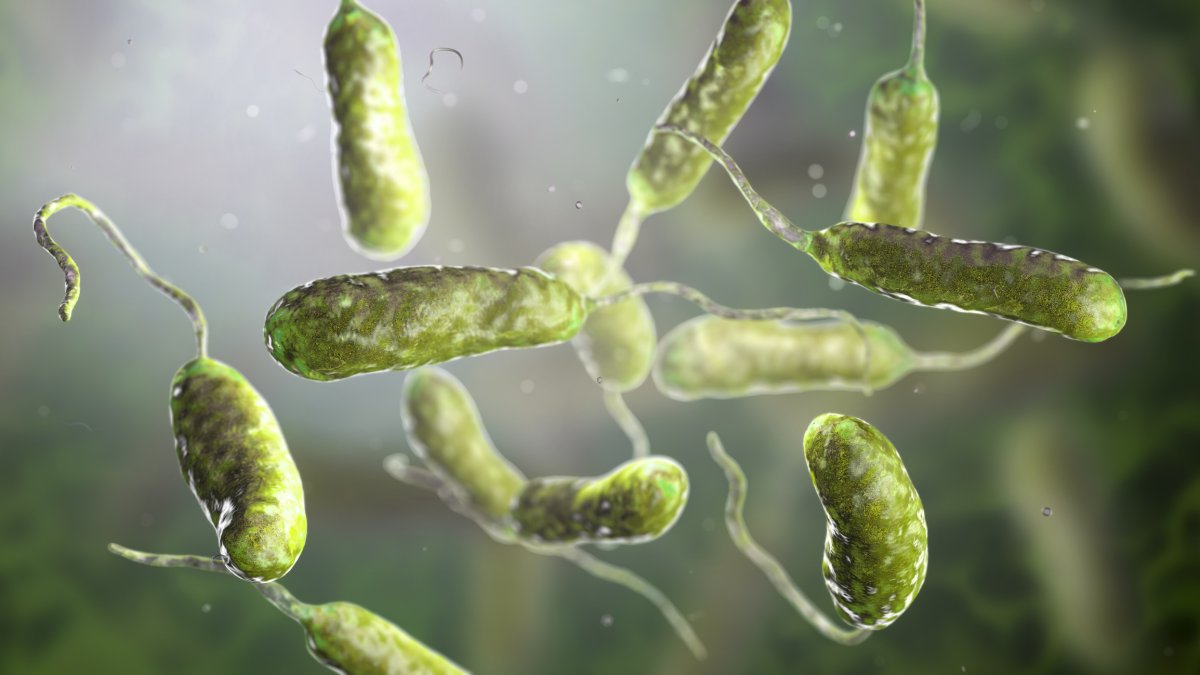Infection
Deadly bacterial infection on the rise in Florida: “serious concern”
A group of potentially lethal bacterial species are on the rise in Florida and could spread to the rest of the United States, experts have warned.
Vibrio bacteria are an aquatic group of microorganisms that can be found in warm coastal waters around the Gulf states. Vibrio bacteria cause an estimated 80,000 infections in the U.S. each year, according to the U.S. Centers for Disease Control and Prevention (CDC).
Most of the infections result in mild or severe diarrhea and other gastrointestinal issues. However, one species, Vibrio vulnificus, can cause a potentially life-threatening infection, with roughly one in five of those infected dying in as little as two days.
Vibrio vulnificus is primarily transmitted through open wound contact with salt water, but in 10 percent of cases the bacteria can also be transmitted through ingestion of raw or undercooked shellfish. Wound infections are typically characterized by necrotizing skin (i.e. causing patches of the skin tissue to die) and inflammation.
Dr_Microbe/Getty
Historically, about 150 to 200 Vibrio vulnificus infections are reported to the CDC every year, usually during the summer months. However, according to new research, this number is expected to rise.
“Vibrio vulnificus is really a nasty one and if it’s left untreated and goes systemic it can be fatal,” Rita Colwell, a distinguished professor at the University of Maryland Institute for Advanced Computer Studies who has studied Vibrio for the last 50 years, told Newsweek.
“The bacteria invades the body’s tissues and [sometimes] the only way to save the life of these individuals is to amputate [the infected limb].”
Between 1992 and 2022, reports of Vibrio infections steadily rose throughout Florida, with Vibrio vulnificus infections rising by a factor of five. A significant spike in cases was also reported after Hurricane Ian made landfall in September 2022.
Following this spike, Colwell and her colleagues at the Universities of Maryland and Florida combined genetic analysis with satellite and environmental data to detect species of Vibrio bacteria in water and oyster samples from Florida’s Lee County, an area which, according to the Florida Department of Health, had the highest caseload of infections in the state after the hurricane.
In their analysis, which was published in the journal mBio on October 16, the team found evidence of 12 different potentially harmful species of Vibrio, including Vibrio vulnificus. “We were very surprised to be able to detect—without any difficulty—the presence of these pathogens,” Colwell said.
These increasing bacterial populations are likely a direct response to Florida’s steadily rising ocean temperatures, as well as increasingly extreme weather, Colwell said.
“Here we have an infective agent that can cause serious complications whose incidence is related to climate change. And this is due to a combination of things: warmer ocean temperatures combined with hurricanes coming through that stir up the water and make it more nutrient rich.
“These conditions are really ideal for powerful proliferation of the Vibrio bacteria [as] these Vibrios generally grow well between 15 and 40 degrees Celsius (59-104 degrees Fahrenheit), so as the temperature warms, their generation time shortens and they divide faster and faster.
“Normally, July, August and September would be the times when you want people to be alerted to potential Vibrio infections. But now we are finding it starts in June and it runs to December. And this is a direct result of climate change and an example of how climate change is influencing infectious disease[…]it’s a very serious concern.”
If caught early, Vibrio infections can be treated with antibiotics. Therefore, it is important to see a physician if you develop any sort of infection after spending time in the sea. “It’s really important that if you have an infection you take it seriously and see your physician,” Colwell said. “People are dying.”
“On the positive side, knowing that these infections are associated with the increased variability of a changing climate, perhaps now is the time to develop mechanisms to understand and mitigate it.”
Uncommon Knowledge
Newsweek is committed to challenging conventional wisdom and finding connections in the search for common ground.
Newsweek is committed to challenging conventional wisdom and finding connections in the search for common ground.

